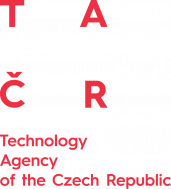The project is supported by the Technology Agency of the Czech Republic within the TREND program, which supports industrial research projects. The main objective of the TREND program is to increase the international competitiveness of enterprises, in particular, by expanding their markets abroad, penetrating new markets or moving higher in global value chains. The program’s secondary objectives are to increase the number of companies carrying out their own R&D activities and to strengthen the focus of research organizations on internationally competitive applied research with benefits for the industry and society. Project RaDron took 8th place in the 1st call for proposals.
The RaDron project aims at developing a miniature device for fast localization of a static or moving gamma radiation source and integrating it into a miniature autonomous aircraft (drone). Later, the detector will be adapted to a handheld radiation imager and as a mobile phone accessory. The miniature detector will utilize a Compton camera using the Timepix3 chips with Si and CdTe sensors. An artificial intelligence software will control the drone to find the source in challenging scenarios, e.g., without GPS signal coverage. The system will also utilize multiple cooperating drones for finding the radiation source faster. Considered scenarios include monitoring of nuclear deposits as well as hazardous events such as nuclear accidents or radiation risk monitoring for the integrated rescue system.
Our team will focus on several scenarios:
- Autonomous searching for the radiation source in the defined area using drone(s) equipped with Compton camera – this solution will be suitable for usage also under complicated terrain conditions
- Monitoring of static scene and evaluation of changes in distribution of radioactivity – e.g. monitoring of nuclear waste depository
- Mobile solution for operative inspection of presence of radiation sources – could be used e.g. by firemen
The main outputs of the project are:
- Drone prototype equipped with Compton camera and corresponding software tools for radiation source searching and identification; several drones can be eventually connected together forming a dynamic net of intelligent cooperating detection units
- Static detection system based on Compton camera for monitoring of radiation environment; one or more cameras can be installed to cover defined space
- Miniature version of Compton camera integrated into smartphone or tablet cover, mobile application for camera control and data visualization

Compton camera for RaDron project will be based on Miniaturized detector MiniPIX TPX3 developed in ADVACAM company, which is shown on the left picture. Result of proof-of-concept experiment of the static monitoring is shown on right: three I-131 sources of activity 10 MBq were placed to distance 3.5 m from the camera.
Initial testing with a single miniature drone equipped with one Timepix detector. A map of radiation intensity is created in real time by the onboard computer.
The consortium takes the advantage of previous long-term cooperation of the partners.
The principle investigator ADVACAM is an expert on instrumentation (HW, SW) and methodology of hybrid semiconductor pixel detectors Timepix/Medipix, as well as advanced data processing and data evaluation for scientific and industrial applications with ionizing radiation. Its team members have a long-standing experience with both Czech and international R&D projects and the company is very successful in implementation of the project results into industry. In the RaDron project, ADVACAM is responsible for the development of the cameras and advanced imaging methods.
The RaDron project also follows form the R&D activities of the Multi-robot Systems (MRS) group at Department of Cybernetics, Czech Technical University in Prague, Faculty of Electrical Engineering. MRS group integrates various research disciplines required for design, implementation, experimental evaluation, and application of complex robotic systems. The MRS group belongs to world leaders in the field of robotics of autonomous unmanned aerial vehicles (drones).
Czech metrology institute focuses mainly on fundamental metrology, maintenance and development of national standards, research and development in metrology. Within the RaDron project, CMI will follow on from the valuable experience with Monte-Carlo simulations of the photon and particle beams as well as the detector response model.
